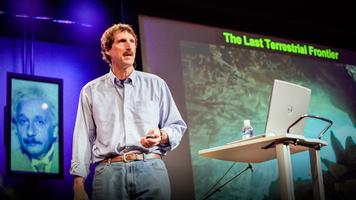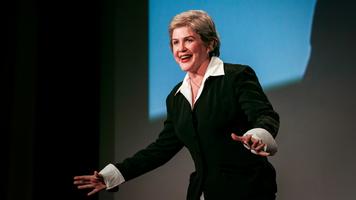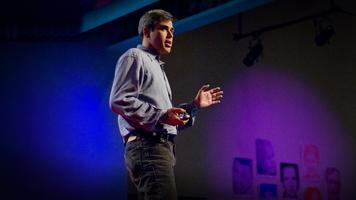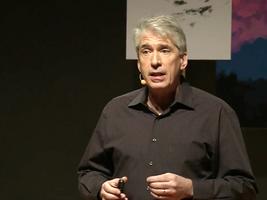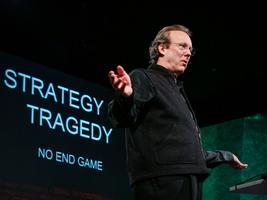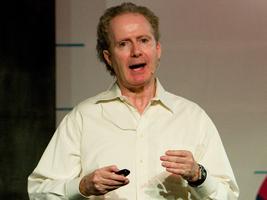Bill Stone: Inside the world's deepest caves
Erica Stone: Academic research is publicly funded -- why isn't it publicly available?
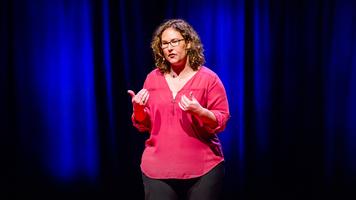
In the US, your taxes fund academic research at public universities. Why then do you need to pay expensive, for-profit journals for the results of that research? Erica Stone advocates for a new, open-access relationship between the public and scholars, making the case that academics should publish in more accessible media. "A functioning democra...
Jill Heinerth: The mysterious world of underwater caves

Cave diver Jill Heinerth explores the hidden underground waterways coursing through our planet. Working with biologists, climatologists and archaeologists, Heinerth unravels the mysteries of the life-forms that inhabit some of the earth's most remote places and helps researchers unlock the history of climate change. In this short talk, take a di...
Wendy De La Rosa: Can't stick to a budget? Try these tweaks instead
Neha Narula: The future of money
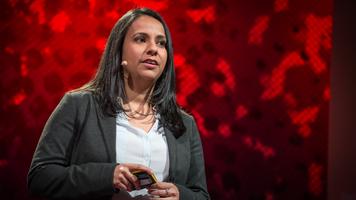
What happens when the way we buy, sell and pay for things changes, perhaps even removing the need for banks or currency exchange bureaus? That's the radical promise of a world powered by cryptocurrencies like Bitcoin and Ethereum. We're not there yet, but in this sparky talk, digital currency researcher Neha Narula describes the collective ficti...
Julia Sweeney: Letting go of God
Ron McCallum: How technology allowed me to read
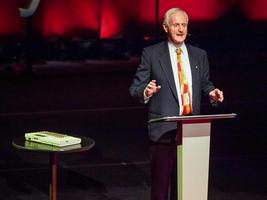
Months after he was born, in 1948, Ron McCallum became blind. In this charming, moving talk, he shows how he reads -- and celebrates the progression of clever tools and adaptive computer technologies that make it possible. With their help, and the help of volunteers, he's become a lawyer, an academic, and, most of all, a voracious reader. Welcom...
Rives: The Museum of Four in the Morning
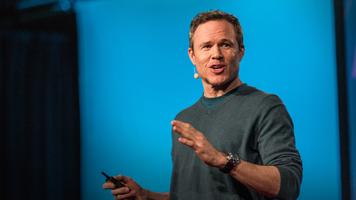
Beware: Rives has a contagious obsession with 4 a.m. At TED2007, the poet shared what was then a minor fixation with a time that kept popping up everywhere. After the talk, emails starting pouring in with an avalanche of hilarious references—from the cover of "Crochet Today!" magazine to the opening scene of "The Metamorphosis." A lyrical peek i...
Jeanette Winterson: Is humanity smart enough to survive itself?
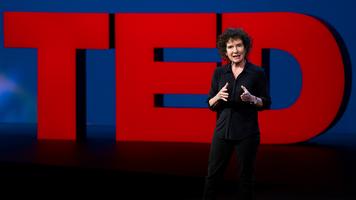
With quick wit and sharp insight, writer Jeanette Winterson lays out a vision of the future where human and machine intelligence meld -- forming what she calls "alternative intelligence" -- and takes a philosophical look at our species, asking: Are we smart enough to survive how smart we are? (Followed by a Q&A with TED's head of curation He...
Natalie Merchant: Singing old poems to life
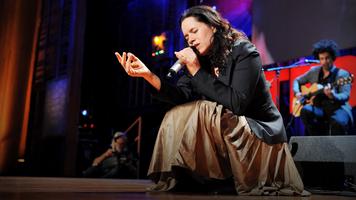
Natalie Merchant sings from her poetry-inspired album "Leave Your Sleep," which pairs lyrics from poets -- from Gerard Manley Hopkins to a near-forgotten 10-year-old girl in Brooklyn -- with simple melodies and her unmistakable voice. Stay for an encore performance of her hit "Thank You," dedicated to a notable philanthropist in the audience.
Jonathan Haidt: The moral roots of liberals and conservatives
Chris Bliss: Comedy is translation
William McDonough: Cradle to cradle design
Brewster Kahle: A free digital library
Temple Grandin: The world needs all kinds of minds

Temple Grandin, diagnosed with autism as a child, talks about how her mind works -- sharing her ability to "think in pictures," which helps her solve problems that neurotypical brains might miss. She makes the case that the world needs people on the autism spectrum: visual thinkers, pattern thinkers, verbal thinkers, and all kinds of smart geeky...
Simon Lewis: Don't take consciousness for granted
Dr. Phillip Atiba Solomon, Rashad Robinson, Dr. Bernice King, Anthony D. Romero: The path to ending systemic racism in the US
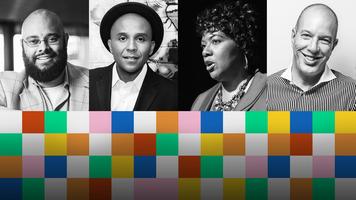
In a time of mourning and anger over the ongoing violence inflicted on Black communities by police in the US and the lack of accountability from national leadership, what is the path forward? Sharing urgent insights into this historic moment, Dr. Phillip Atiba Solomon, Rashad Robinson, Dr. Bernice King and Anthony D. Romero discuss dismantling t...
